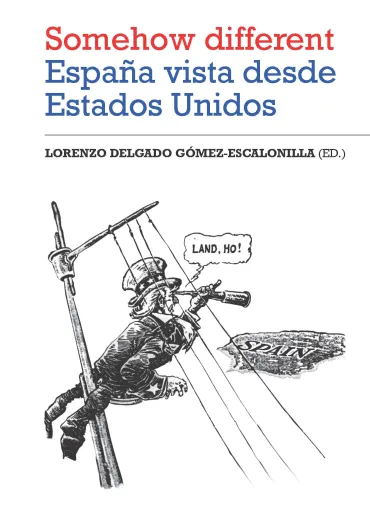Summary:
In the US, knowledge about Spanish society is limited. The clichés and stereotypes forged in the past continue to carry weight in the present times. From the view of Spain as a nation that oppressed Latin American countries in the 19th century to the current view as an ally to the United States and part of the European Union. A changing image of Spain depending on social sectors and conditioned by the greater or lesser contact knowledge of the other. This work follows a series of clues through which the view of Spain in the United States has been constructed on: the echoes of the North American press of the war in Cuba and World War I; the international condemnation of Franco regime and its position regarding the Spanish matter; the mistrust to the Nazi refugee networks in Spain; the establishment of North American companies and investments; the disparity of reactions to the promotion of Francoism in the United States; the attitude of its foreign policy towards Franco’s succession; the North American stance in the face of Iberian transitions toward democracy, and the current bilateral relations in the strategic framework. The evolution of such views must be analyzed starting with the contexts in which they were created, to appreciate their foundations and repercussions. From this collage emerges a diversity that helps to better understand this shared history.
Lorenzo Delgado Gómez-Escalonilla
Es investigador del Instituto de Historia, CCHS-CSIC. Sus estudios han abordado la historia de las relaciones internacionales en el siglo XX, especialmente las relaciones entre España, Estados Unidos, Francia y América Latina. Entre sus publicaciones más recientes, se encuentran Ciencia en Transición. El lastre franquista ante el reto de la modernización (2019), Teaching Modernization. Spanish and Latin American Educational Reform in the Cold War (2020) y El americano imposible. Estados Unidos y América Latina, entre modernización y contrainsurgencia (2023).


